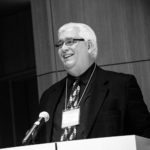Researchers increasingly recognize the value of public-use data for secondary research, thesis development, training and education and the development of independent research grants. As cutting edge international studies are emerging across Asia, Latin America, Europe, and increasingly Africa the opportunities for cross-national and comparative research are growing exponentially. This is a particularly exciting time to work, due to the large number of trained research professionals working within their home countries and providing culturally grounded interpretations of results. An ongoing barrier, however, is knowing where and what kind of data are available for secondary analysis.
The creation and maintenance of sustainable data archives can be challenging but it offers clear advantages for a national and international research strategy. Data that is preserved can be used by multiple researchers, testing a variety of hypotheses and increasing the return on investment to the expensive process of data collection. Having an internally managed archival system also provides greater control and autonomy in the equitable distribution of data resources. This workshop, sponsored by IAFOR and the National Archive of Computerized Data on Aging (NACDA) will offer hands-on examples of how to discover data resources, obtain them and then implement them as part of a research strategy. Regardless of whether or not you are a student looking for a thesis topic, an instructor looking for research material to using classroom teaching, or an established researcher looking for new opportunities the wealth of publicly available data has created almost unlimited opportunities to explore new themes and to collaborate with other researchers worldwide. NACDA has been in existence for over 35 years, and its preserves and really distributes over 1,500 studies on the lifecourse and health in the United States and worldwide. Funded by the National Institute on Aging in the United States, NACDA represents one of the world’s largest collections of research data. NACDA is only one of many such organizations, and increasingly these data resources can be found, if not in your home country then only a click away via the Internet.
The workshop will introduce you to NACDA and are many research partners across the world. All researchers attending The Asian Conference on Aging & Gerontology 2020 (AGen2020), The The 10th Asian Conference on Psychology & the Behavioral Sciences (ACP) or The 10th Asian Conference on Ethics, Religion & Philosophy (ACERP2020) are welcome to participate in this workshop, ask questions and learn about data resources you can use for research, classroom instruction or in developing a research paper or thesis for your college classes. All you need is your laptop or mobile device and our instructors will help you better understand the wealth of information that lies at your fingertips.
An IAFOR Workshop in collaboration with the University of Michigan.
Biography
 Dr James W. McNally is the Director of the NACDA Program on Aging, a data archive containing over 1,500 studies related to health and the aging lifecourse. He currently does methodological research on the improvement and enhancement of secondary research data and has been cited as an expert authority on data imputation. Dr McNally has directed the NACDA Program on Aging since 1998 and has seen the archive significantly increase its holdings with a growing collection of seminal studies on the aging lifecourse, health, retirement and international aspects of aging. He has spent much of his career addressing methodological issues with a specific focus on specialised application of incomplete or deficient data and the enhancement of secondary data for research applications. Dr McNally has also worked extensively on issues related to international aging and changing perspectives on the role of family support in the later stages of the aging lifecourse.
Dr James W. McNally is the Director of the NACDA Program on Aging, a data archive containing over 1,500 studies related to health and the aging lifecourse. He currently does methodological research on the improvement and enhancement of secondary research data and has been cited as an expert authority on data imputation. Dr McNally has directed the NACDA Program on Aging since 1998 and has seen the archive significantly increase its holdings with a growing collection of seminal studies on the aging lifecourse, health, retirement and international aspects of aging. He has spent much of his career addressing methodological issues with a specific focus on specialised application of incomplete or deficient data and the enhancement of secondary data for research applications. Dr McNally has also worked extensively on issues related to international aging and changing perspectives on the role of family support in the later stages of the aging lifecourse.
Dr James W. McNally is a Vice-President of IAFOR. He is Chair of the Social Sciences & Sustainability division of the International Academic Advisory Board.
